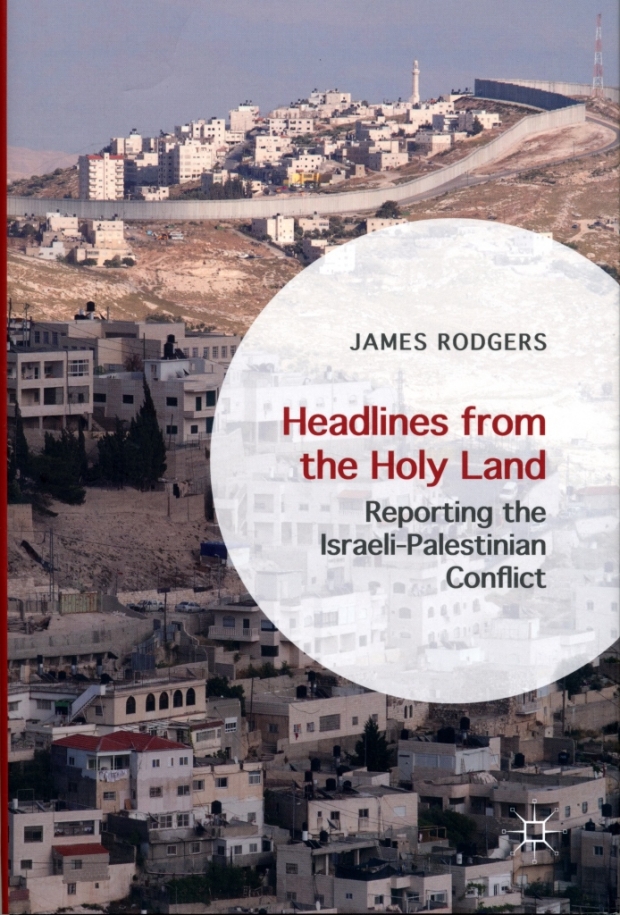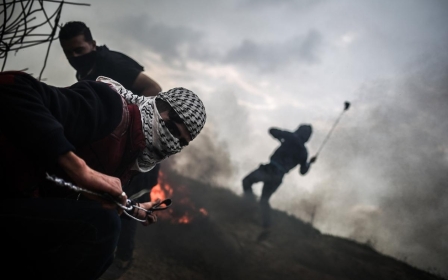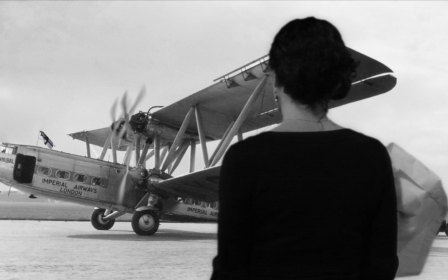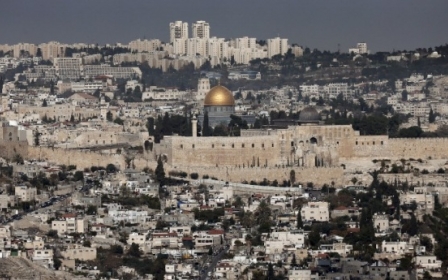REVIEW: BBC veteran's backstory on reporting of a war without end
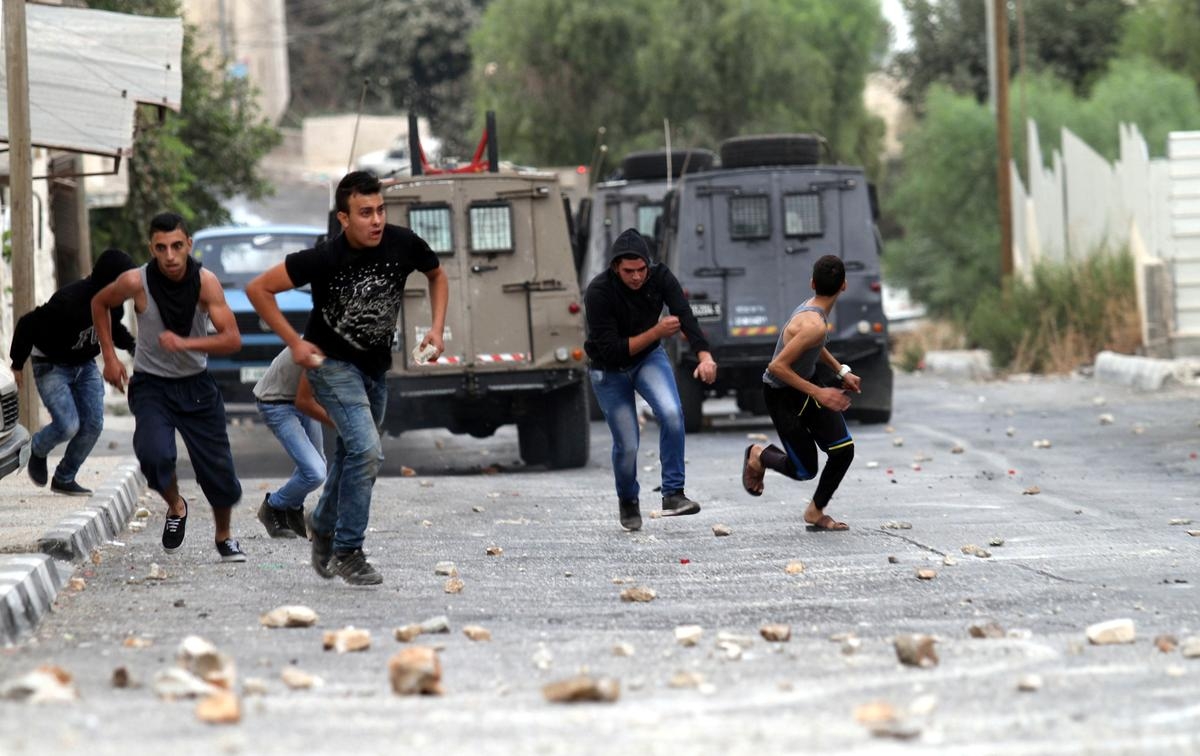
This unusual book holds promise for those intrepid enough to follow in reporters’ footsteps, while not having to physically visit Gaza, Israel or the West Bank. You’ll need to be steadfast in your pursuit of the truths of the news journalism business, because the terrain here isn’t smoothly paved, either linguistically or narratively.
Some memoirs of foreign correspondents are disappointingly frivolous, even if they are written in a manner we’d expect in a newspaper or magazine. But while Headlines from the Holy Land would never get serialised or even make it past a sub-editor’s workstation, it can be keenly recommended if you don’t mind rolling up your shirtsleeves and keeping the kettle on.
James Rodgers sets some basic ground rules in understanding just why a news agency would want dispatches from periodically violent yet slow-evolving Palestine. For a start, the sun has his huge hat on rather a lot, which takes a toll on Europeans and North Americans who frankly aren’t used to it.
The chapter, The End of the British Mandate, proves the point while applauding reporters of the past who’d been witness to the Zionists’ revolt leading up to their 1948 military victory. With the Second World War finished, Palestine became a replacement battleground enticing the editorial appetites in London and New York City, their main media offices hungering for a suppletion of stories.
The most obvious punchy news was the surprise dynamiting of the King David Hotel in Jerusalem, carried out by Menachem Begin’s underground Urgun organisation. These landmark lodgings served as offices for the military, the police, and Westminster Mandate mandarins, so here was a story indeed.
While Foreign Office documents apparently reveal that the purpose of the Mandate was never entirely clear to those serving His Majesty’s Government in Palestine, reporters, as the author speculates, must have been wise to this fact. In any event, the typewriter corps understood perfectly well what the local Jewish insurgency were after. The author introduces us to the pack of journalists who actually witnessed it, and almost died from it: Clare Hollingworth (Observer and Economist), Barbara Board (Daily Mirror), and Peter Duffield (Daily Express). The women had privileged access to both halves of the local Jewish and Arab communities, which enriched their reporting. And you can’t really argue with an editor; for Mr Duffield’s story had to share the front page with a riot, merely over betting money, at a London dog-racing track.
The value in this historical coverage isn’t the narrative, unwieldy anyway, but Rodgers’ kindness in introducing us to reporters of the past, and especially nudging us towards their own books. Some aren’t politically informative, such as the ex-RAF pilot Hollingworth’s Front Line, which only makes minimal reference to Palestine post-WWII. But I hadn’t been aware of Board’s Newsgirl in Palestine (1937), in which her keen 1936 eye unpacks childbirth, camelbirth, emancipated Christian Arab women, Jewish land-girls accomplished with rifles, and Palestine radio’s Children’s Hour.
Having been lured to these and other reporters’ autobiographies, they don’t all help our understanding of the era. For that, you’ve got to do what Rodgers did and examine their newspaper reports, a great many of them, and more titles than you could remember. To his great credit, he faults the vengeful attitude of Fleet Street establishment; it’s just as wrong to blame terror attacks on all Muslims today as it was to accuse all the Jews of terror against the British Occupation in 1946.
Further, as a former BBC journalist himself, he’s had access to his contemporaries in a wide range of personal interviews, which he employs here. The respondents’ range is impressive indeed: major sources from the BBC, ITV, the Guardian, New York Times, Independent, Financial Times, Time Magazine, and even the strictly online Vice News.
The result is, at stages, too much of a meal to digest, with this reviewer having to often re-read earlier pages. But you’ll learn much of the backstage production of what gets scripted for print, television and, thankfully, radio. Facts can be complicated. Only a sliver of the audience will understand them and they’ll be the ones to complain about seemingly naughty nuances that scrape against their preferred narratives.
If you’re in this game, it seems you soon become frustrated that you can’t do much more than provide sacrificial stories on the altar of “If it bleeds, it leads,” the editor’s ever-present credo in construction of the day’s news agenda. Never mind that the Israeli Foreign Ministry rings up your editor! Therefore, in the news equivalent of the pop music charts, settlement expansion, blockades, and all the other reasons for violence aren’t usually enough to warrant coverage – only the violence itself.
You’ll have to watch your language too and you’ll better understand the seriousness of potential faux pax after Rodgers’ dissection of words such as terrorist, settlement, refugee, and I suppose calling the sky blue. This goes beyond Jeremy Bowen’s advice that the polemicist and propagandist cannot be a journalist.
Jerusalem has long been considered “The Five Star war,” in that reporters could socialise at hotel bars. One could, until recently, visit a conflict location sans the hardship endured by, say, the BBC’s Lyse Doucet, and then scoot back for dinner in an Israeli restaurant, yet appearing to be a real war correspondent. Now, budgets are tighter, with correspondents required to be more regionally mobile.
The most revelatory aspect of news-gathering, for me, is the apparent privileged access that foreign press have in interacting with Palestinians because non-military Israelis haven’t entrée through checkpoints, and embassy staff aren’t keen to cross diplomatic lines. Therefore, the ambassadors and their entourages often obtain info via the public press.
One potential problem for me is the author’s emphasis on religion as a motivating factor in the continued impasse. He correctly notes that Oslo’s reliance on land swaps mistakenly treated the region as basically contested real estate. Mere ownership doesn’t explain peoples’ emotional attachment to properties. But rivalry of faiths, while more pronounced than it used to be, doesn’t explain the animosity either.
That said, this detailed study takes no account of the inherent Israeli racism against Arabs, which is not only found amongst the right-wing settlers who’ve hijacked their religion to further the goals of this extreme Apartheid. He cites Itamar (Hebron) settlers willing to live in substandard housing as a kind of holy sacrifice. Yes, religious difference is waged politically, as is the fashion with most jihadists, but I suspect it’s a fear of the racial other that’s the biggest challenge in today’s Holy Land.
Headlines comes at a cusp of change, with Twitter as elevated as it is instantaneous. Therefore, we’ll increasingly rely on text-based news services, online and printed, for any nuggets of nuance. This is a bumpy-road-of-a-book, best enjoyed if you simply climb in for the ride. You’ll not likely retain all the details but many will be news to you.
Headlines from the Holy Land: Reporting the Israeli-Palestinian Conflict by James Rodgers is published by Palgrave Macmillan, 2015 (ISBN 9781137395122) 215pp £25.
- Andy Simons is a London-based retired book curator of modern UK publications for the British Library, who works with PSC branches, the Palestinian Return Centre and CADFA. He organised the 2014 Tottenham Palestine Literature Festival and has edited Palestine: The Reality, the 1939, Balfour-related work by JMN Jeffries, for republication in 2016.
New MEE newsletter: Jerusalem Dispatch
Sign up to get the latest insights and analysis on Israel-Palestine, alongside Turkey Unpacked and other MEE newsletters
Middle East Eye delivers independent and unrivalled coverage and analysis of the Middle East, North Africa and beyond. To learn more about republishing this content and the associated fees, please fill out this form. More about MEE can be found here.


